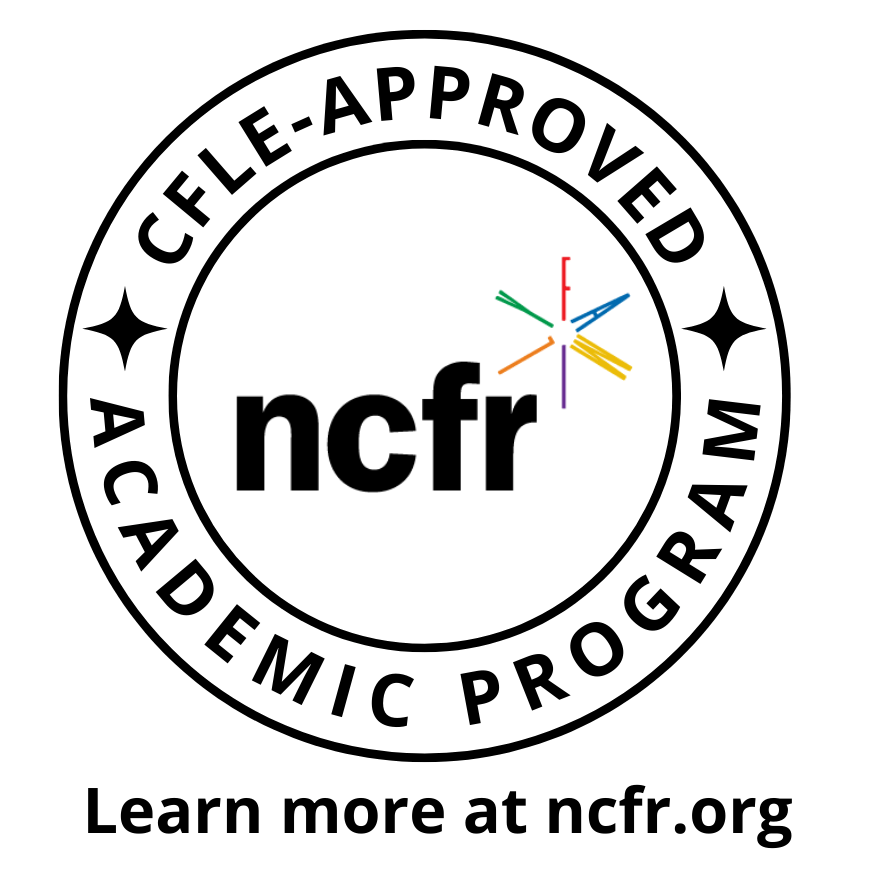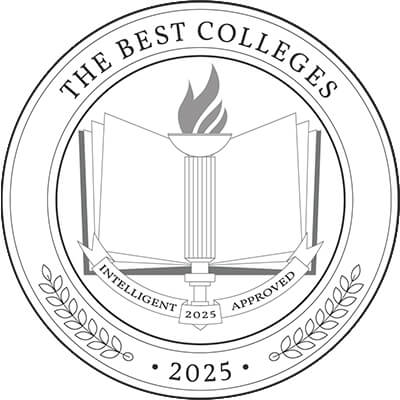Individual, Family & Community Sciences
Helping You Help Others
Individual, Family, & Community Sciences (IFCS) is a broadly defined field with an interdisciplinary knowledge base, focused on the diverse needs of communities and individuals through community resources. The Master of Science (M.S.) in Individual, Family & Community Sciences offers coursework and practical applications for advanced qualifications grounded in best practices for success in the helping professions. Students completing the program qualify for provisional Certified Family Life Educators (CFLE).
Graduates learn strategies to promote human well-being, social justice, and empowerment. Graduates of this program are equipped with the knowledge, skills, and ethical principles necessary to work effectively in roles such as community leaders or organizers, nonprofit administrators, marketing and public relations, policy advocates, mediation/advocacy in the legal system, plus many roles with private, public, voluntary, international, and nonprofit organizations. This degree provides the tools to make a positive impact in the lives of individuals and communities.
For students wanting an in-person program, please visit the M.S. IFCS webpage.
Certified Family Life Educator (CFLE)
Graduates of this program are eligible to apply for the Certified Family Life Educator (CFLE) certification through coursework approved by the National Council on Family Relations. CFLEs have proven knowledge in the 10 Family Life Education Content Areas:
- Families and Individuals in Societal Contexts
- Internal Dynamics of Families
- Human Growth and Development Across the Lifespan
- Human Sexuality
- Interpersonal Relationships
- Family Resource Management
- Parent Education and Guidance
- Family Law and Public Policy
- Professional Ethics and Practice
- Family Life Education Methodology
Program information including curriculum and graduation requirements can be found in the ETSU Graduate Catalog.
This degree leads to certification as a Family Life Educator but does not lead to professional licensure as a counselor. See the M.A. in Counseling program (not an online program) for information on counselor preparation programs.
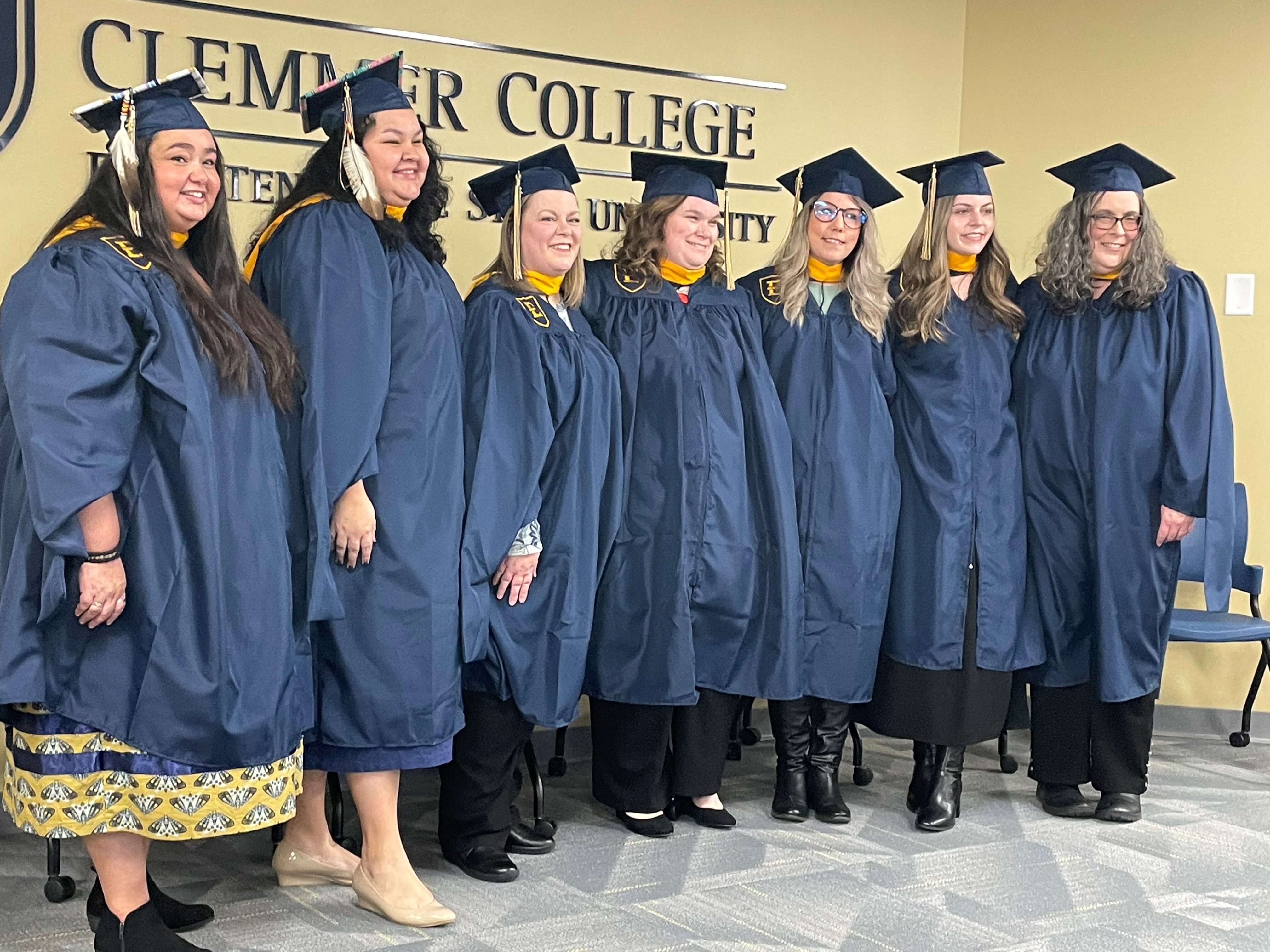
Career Opportunities
This degree focuses on individual, family & community issues as well as social justice. While IFCS practitioners will work for the public, they will also serve foundations and for-profit purposes in areas. Within the program, students can select electives, field work settings, and course projects to tailor to their career goals.
Career options for graduates with the CFLE credential are expansive. Visit the NCFR website for additional career resources.
Job Fields may include:
|
|
Helping Make the World a Better Place
The mission of the Individual, Family & Community Sciences program is to prepare knowledgeable, skilled, critically conscious, and ethical family science scholars and professionals in their understanding and appreciation of the diversity and complexity of individual, families and their communities.
Steps to Apply
-
Step 1 - Create your ETSU Application Account
Step 1 Create your ETSU Application Account by choosing the "Sign Up" option

-
Step 2 - Sign into the ETSU Application Portal
Step 2 Sign into the ETSU Application Portal and select "Start a New Application"
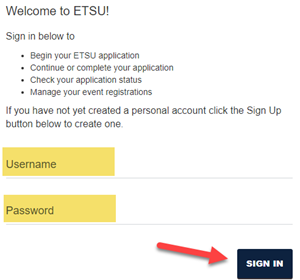
-
Step 3 - Complete the Remaining Fields
Step 3 Choose "Graduate," select your student type (domestic or international), select "Master's," term, then choose Individual, Family & Community Sciences and complete the remainder of the form.
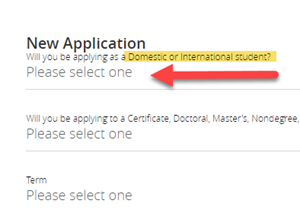
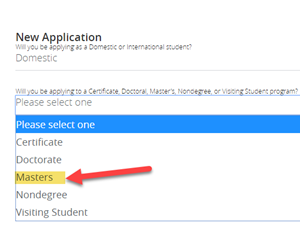
Cost
Credits to complete this program: 36 credit hours
| TN Residents | *eRate | Out of State |
|---|---|---|
| $672 per credit hour | $835.50 per credit hour | $1,513 per credit hour |
| - The *eRate applies to students living out of state and taking all web-based courses. - Additional fees may be required. - Visit the Paying for College page to read more about costs and financial aid options. - The costs associated with attending ETSU can include both direct and indirect costs. Please review ETSU's Cost of Attendance for more details. |
||
Frequently Asked Questions
-
What makes this program unique?
This unique program focuses on family and fully explores family theory related practices. Instruction is on an asset & resilience model, that acknowledges challenges and deficits while striving to meet individuals, families and communities where they are. This program explores ways to utilize the assets each person, family, and community brings to the table.
The program coordinator will work with each student to create a program of study that fits their individual needs. There is also a proposed schedule that allows students to see when classes are offered.
-
What accreditations apply to this program?
The IFCS program has obtained Approved Program Status through the National Council on Family Relations (NCFR) and leads to the Certified Family Life Educator credential.
East Tennessee State University is accredited by the Southern Association of Colleges and Schools Commission on Colleges (SACSCOC) to award baccalaureate, master’s, education specialist, and doctoral degrees. East Tennessee State University also may offer credentials such as certificates and diplomas at approved degree levels. Questions about the accreditation of East Tennessee State University may be directed in writing to the Southern Association of Colleges and Schools Commission on Colleges at 1866 Southern Lane, Decatur, GA 30033-4097, by calling (404) 679-4500, or by using information available on SACSCOC's website (www.sacscoc.org).
-
Does a student's undergraduate degree have to be related to this field?
A bachelor's degree is required for admission. A degree in a related field is preferred; however, the applicant’s personal statement and interview indicating a commitment to individuals, families, and communities will be considered for those with unrelated bachelor's degrees.
-
Does this program require the GRE?
The GRE is not required.
-
Are there any on-campus requirements?
All classes are online asynchronous, with no on-campus requirements. However, there is an internship requirement.
-
Does this program require a capstone project or internship?
The program requires an internship. The internship can be arranged in the student’s local community or through working with their employer in a different capacity than their current position.
A capstone is also required as the culminating experience.
-
What is the time to completion?
Full-time students: 4 semesters.
Part-time students: 6 semesters.
-
How many spaces are available for each cohort?
There are 10 spaces available during the summer and 20 during the fall.
-
Are scholarships available?
Students are also encouraged to visit the Paying for Graduate School website for information regarding ETSU graduate scholarships and other financial resources. The department offers Graduate Assistantships and Tuition Scholarships on a competitive basis for full-time students.
 Stout Drive Road Closure
Stout Drive Road Closure 